The world of commercial real estate is nothing short of complex. Building or selecting a commercial property to invest in requires extensive insights into the market and future trends. Managing a commercial property requires layers of complex logistics and financial balancing. Typically, these tasks require a great deal of research and months of analysis to achieve the ideal commercial real estate strategy. With the advanced, robust software being developed today, commercial real estate investors and property managers will be able to streamline their most demanding operations.
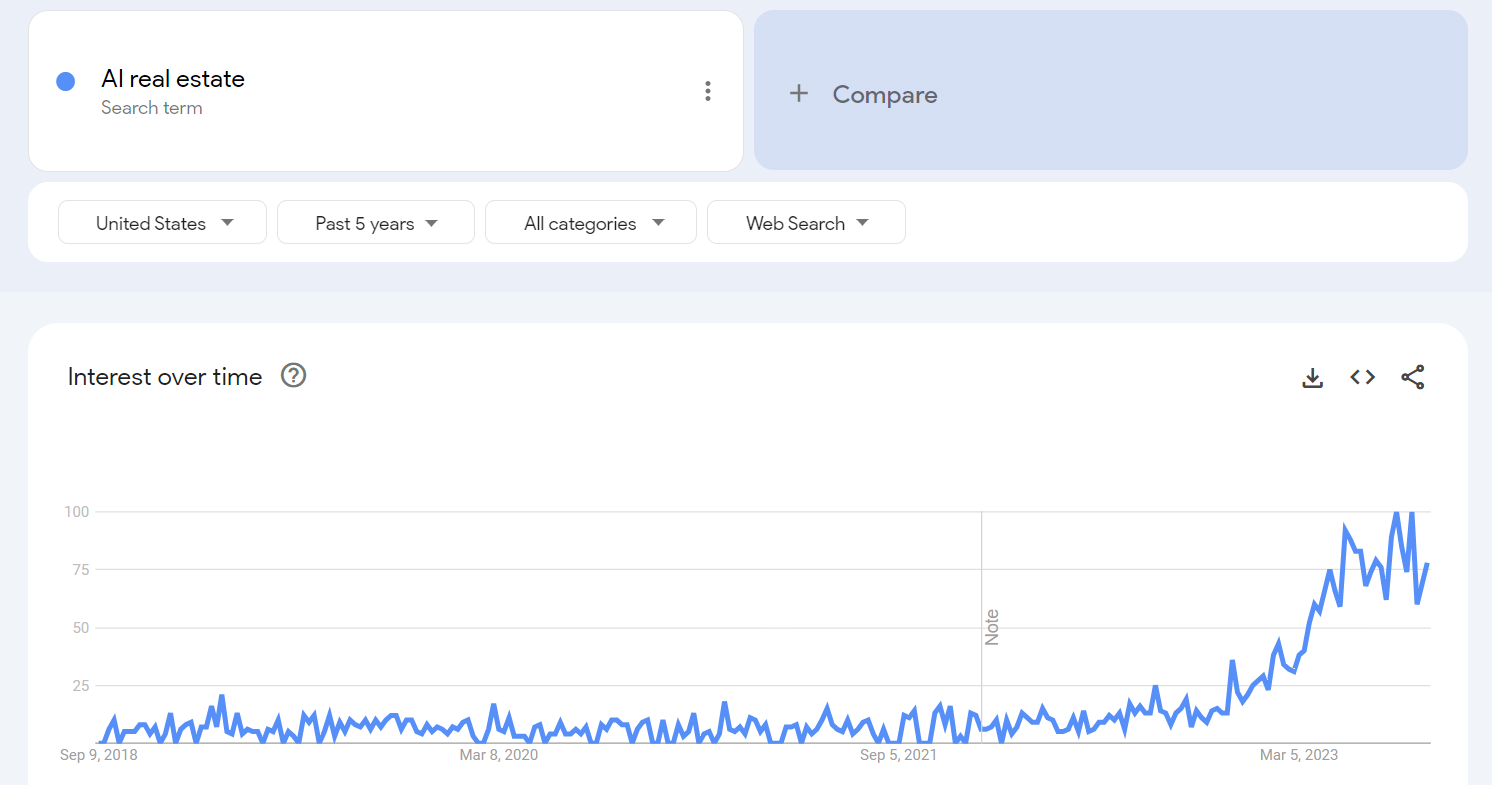
AI has often been brushed off as just a fancy calculator, capable of crunching numbers and understanding big data. But over the past year, its role in the CRE industry has evolved. It’s about swift and savvy insights, understanding vast data pools, spotting trends, and even redefining communication within the industry.
What does (and does not) AI hold in store for the CRE industry, and property management specifically? This article will take a deep dive into the present and the future of AI for Commercial Real Estate and how it influences the industry.
In commercial real estate, investors and property managers handle vast amounts of data. In fact, the more information you can visualize and process, the better-guided your decisions can be. Market data and trend data allow you to predict what will be in demand and how to ensure your commercial real estate strategy is profitable. Maintenance and upkeep data allow you to stay on top of managing the building, your vendors, and commercial tenants. But the effort of researching, analyzing, and studying this data in a useful way can become a herculean task.
Here are the areas where AI in CRE has come to shine:
Let’s review each application area in detail.
In commercial real estate, market analysis and property valuation require the collection and comparison of many different details, including economic factors, location, traffic, recent market changes, and shifts in property value. An AI-based tool can absorb all the relevant market data you need to find the next investment opportunity and produce useful analysis that can help identify the most valuable properties.
AI can do more than look at current data. AI-powered technology can also identify patterns and predict future trends. AI & ML has been used to predict trends for years and this application is now becoming popular in the commercial real estate industry, as well.
When AI gets lots of data, it can see past trends and guess what might come next. This is handy when trying to find places that might become popular later, or guessing if property values and business interest will go up.
For portfolio management, AI-based software will offer recommendations on diversifying investments across markets to reduce risks. AI can forecast when properties might require maintenance or upgrades, allowing for timely budgeting. Based on market dynamics AI tools will give suggestions on where to invest, when to branch out, when property might need upkeep, and how to boost net operating income.
We believe that custom AI integrations represent the most significant application of AI in real estate. Commercial real estate, specifically, has deep-rooted traditional practices. Despite this, the industry is now actively exploring AI technologies. AI can seamlessly work alongside current tools, not to replace but to provide enhanced efficiency and growth for the sector.
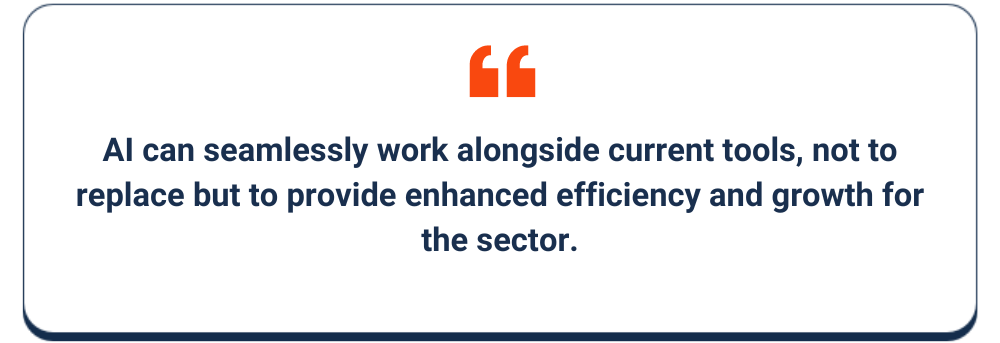
AI isn’t just reshaping investment strategies in the CRE; its impact is significant in property management specifically. Commercial property management encompasses overseeing buildings, handling leases, maintaining assets and equipment, managing vendors, and interacting with tenants. This means the scope for AI’s integration is vast. Commercial property managers can significantly enhance operational efficiency and reduce the margin of error when it comes to pulling reports across multiple properties and regions.
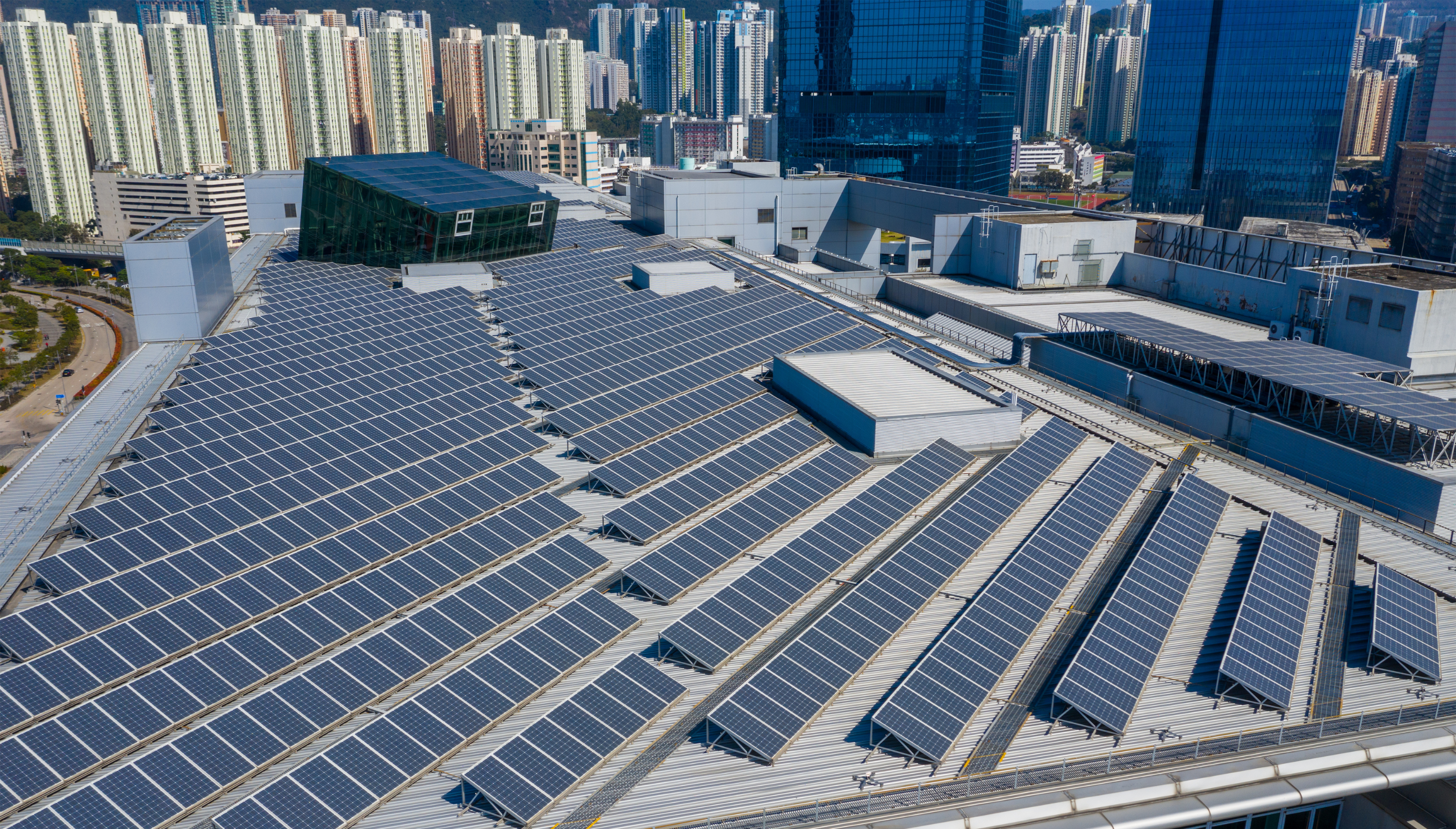
These are our top predictions for the applications of AI for commercial property management:
AI chatbots learn from tenant history, cutting down the time property managers spend on routine tasks, such as responding and managing tenant service requests. We think that more and more AI chatbots will be designed tailored to the specific needs and policies of each property management or asset management group in the future. An AI chatbot can be pre-trained (prompted) with the answers you want it to give for common questions. This will significantly reduce the time property managers spend on routine requests, drafting documents and messages. But it can also improvise and learn from the conversations it has with tenants (occupiers), vendors and internal team members.
With the integration of AI chatbots, property managers will be able to focus more on strategic goals and portfolio growth.
Predictive maintenance is the process of modeling out the ideal maintenance schedule for every element of a commercial property, from the rooftop membrane to the basement boiler. A predictive maintenance AI is far more powerful than a simple calendar, as it can contemplate the full scope of a commercial building’s maintenance needs, intake manuals regarding every material and appliance in the building, the age of each piece of equipment, and even consider recent repairs or performance issues.
With this information, the AI will calculate an ideal predictive maintenance schedule, sharing these dates in a timely manner with the property manager or even automatically schedule inspections and repair orders through a booking tool.
Lease abstraction, a cornerstone of commercial lease management, will become significantly more efficient with AI. Commercial lease structures, specifically net-leases—be it NNN, modified, or gross are quite complex. Instead of sifting through dense lease documents manually, AI can quickly identify and extract key terms and conditions tailored to specific commercial tenant profiles. This will ensure both tenants and property managers are on the same page, with clear, easily accessible insights into the lease’s essential points.
Each commercial property generates myriad data points daily—lease agreements, maintenance schedules, tenant interactions, energy usage, financial transactions, and more. AI-driven data mining tools will be able to integrate with your existing tech systems to process and analyze vast amounts of information with unparalleled speed.
But it’s not just about quick number crunching; it’s about depth, going beyond metrics like rent collection rates or maintenance costs. AI-powered analytics and reporting tools will dive deeper. It can correlate seemingly unrelated data, like the impact of local events on parking space usage or the correlation between weather patterns and building energy consumption. This will reveal the insights that might otherwise remain unnoticed.
Another very important service that CRE AI tools can offer is sustainability monitoring, optimization, and reporting. Using energy monitoring devices in key locations, an AI can help monitor how much energy your building, tenants, and individual appliances are consuming. It can then forecast future patterns and calculate how to reduce energy use without impacting the performance of the building or satisfaction of your tenant.
The same can be applied to water conservation and other elements of sustainability, as well. Water flow monitors can be placed within your plumbing system to identify water usage and optimization opportunities, as well as detecting leaks as soon as they occur. Gas lines can be monitored in a similar fashion, helping to reduce waste and increase building safety at the same time, while also providing useful reports on consumption rates.
What AI cannot do is take over building management. AI can predict when your HVAC system will need maintenance; it might even send a service request to an approved contractor, but it cannot do more. AI cannot greet contractors, monitor their work, or rate the work when it’s done. AI cannot negotiate or sign a contract with tenants, it merely suggests negotiation positions that might be profitable, desirable, or beneficial.
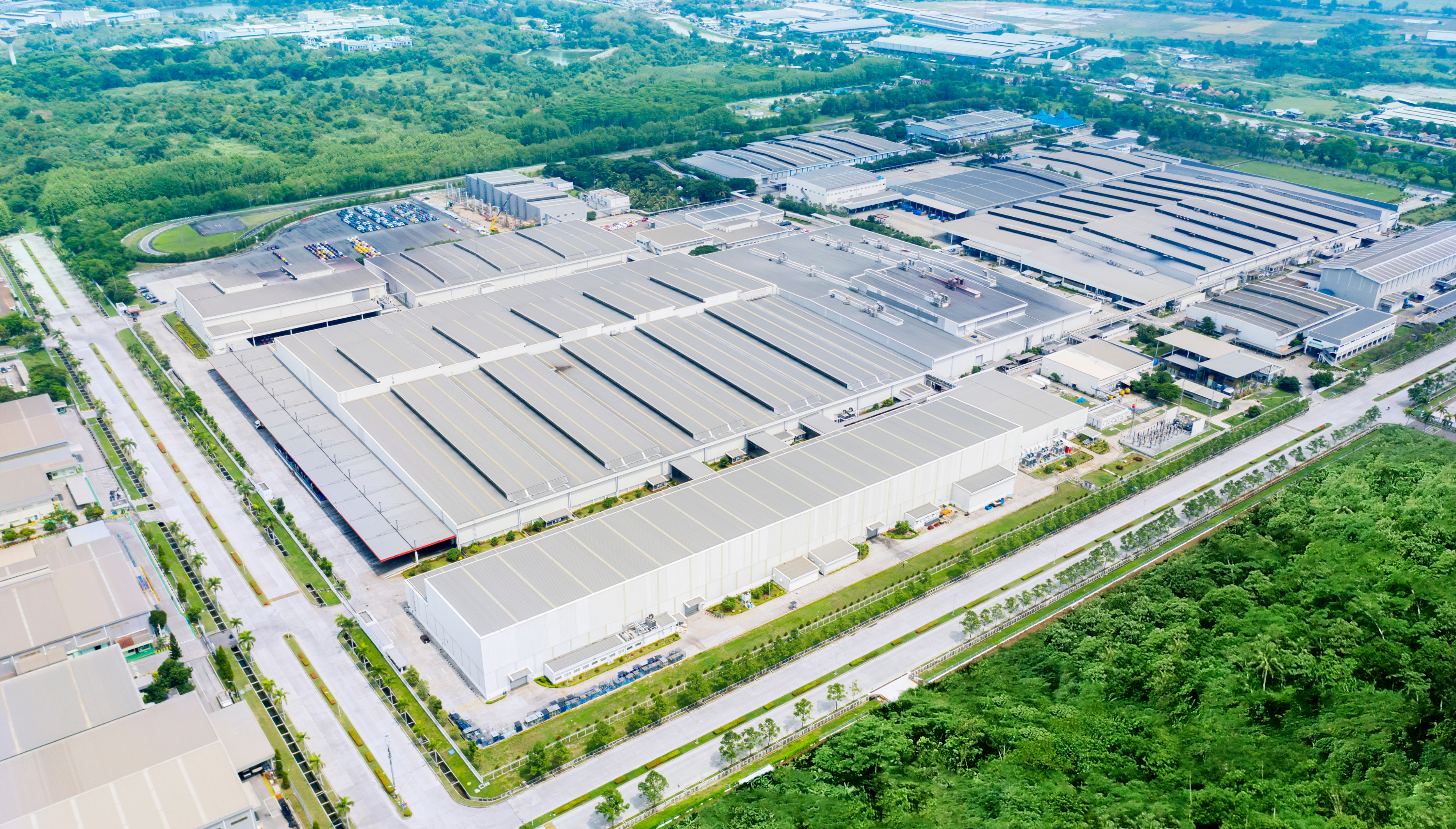
Property managers can streamline their workflow, optimize operations, improve accuracy and insights, using AI but there is no substitute for a discerning human team. However, a human team can extensively enhance their own capabilities with the addition of AI tools and deep analytical insights. It doesn’t replace management tasks but amplifies decision-making and prediction capabilities. We view AI as a potent tool that enriches existing tech infrastructure, rather than a tool to replace human expertise.
Artificial intelligence has already made its way into the tools that property managers use daily, often operating behind the scenes in ways they might not even be aware of. Its ability to rapidly analyze data, predict trends, and automate tasks has made it an indispensable ally in streamlining operations and improving decision-making.
Looking forward, we anticipate a surge in AI-driven innovations tailored to elevate tenant experiences, enhance predictive maintenance, optimize in-depth analytical reporting, and building energy consumption. Another trend we foresee is the custom integration of AI tools with existing CRE software, enhancing the operating processes and workflows.
The AI-driven future in commercial real estate is set to recalibrate investment management and operational efficiency standards. The question is, how will you and your team gear up to take advantage of these advancements, improving tenant lease renewals and boosting NOI?
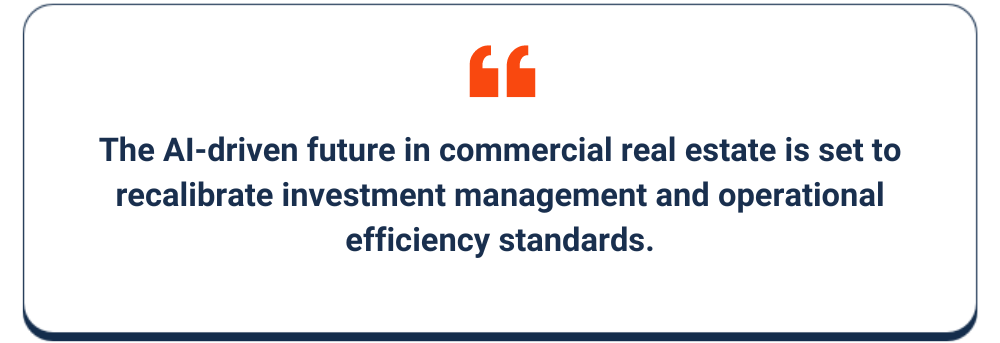
As the landscape of commercial real estate evolves, Fyxt stands at the forefront of innovation, equipped with cutting-edge capabilities designed to solve various challenges commercial property managers face. The Fyxt platform automates maintenance, optimizes vendor interactions, streamlines lease administration, and enhances risk and financial operations, all while elevating the commercial tenant experience. Fyxt is not just anticipating the future of commercial property management – we’re actively shaping it.
Building on a wealth of knowledge and expertise in both real estate and technology, Ryan set out on a mission to redefine the commercial property experience through technology and for the past 5 years has successfully built a team, product, and company to do just that. Ryan is also a member of the Forbes Real Estate Council.
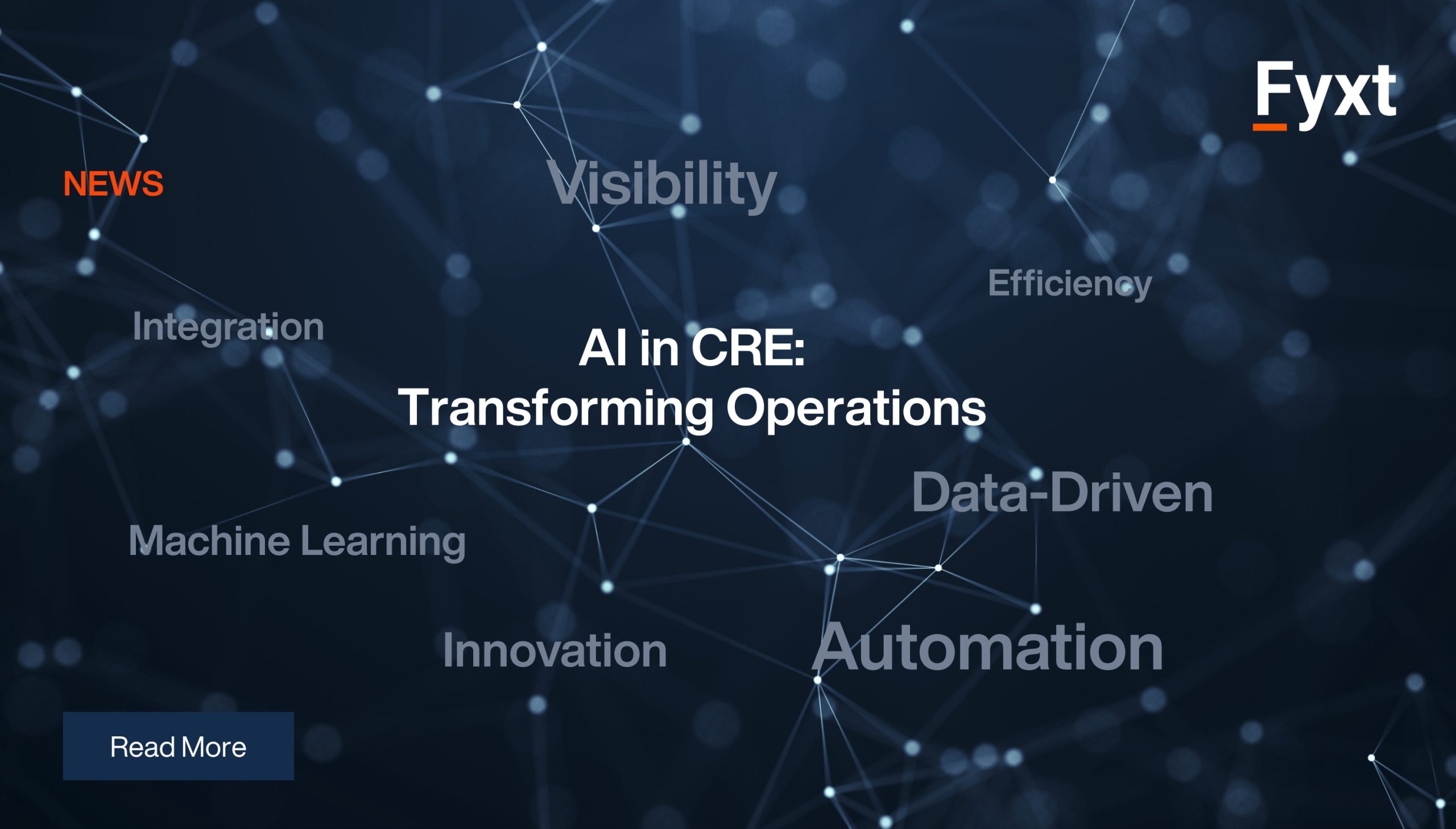
AI in CRE: Transforming Operations, Not Just Buzzwords Commercial real estate is no stranger to buzzwords: digital transformation, automation, AI. We’ve heard them all. But hype alone doesn’t drive real outcomes.
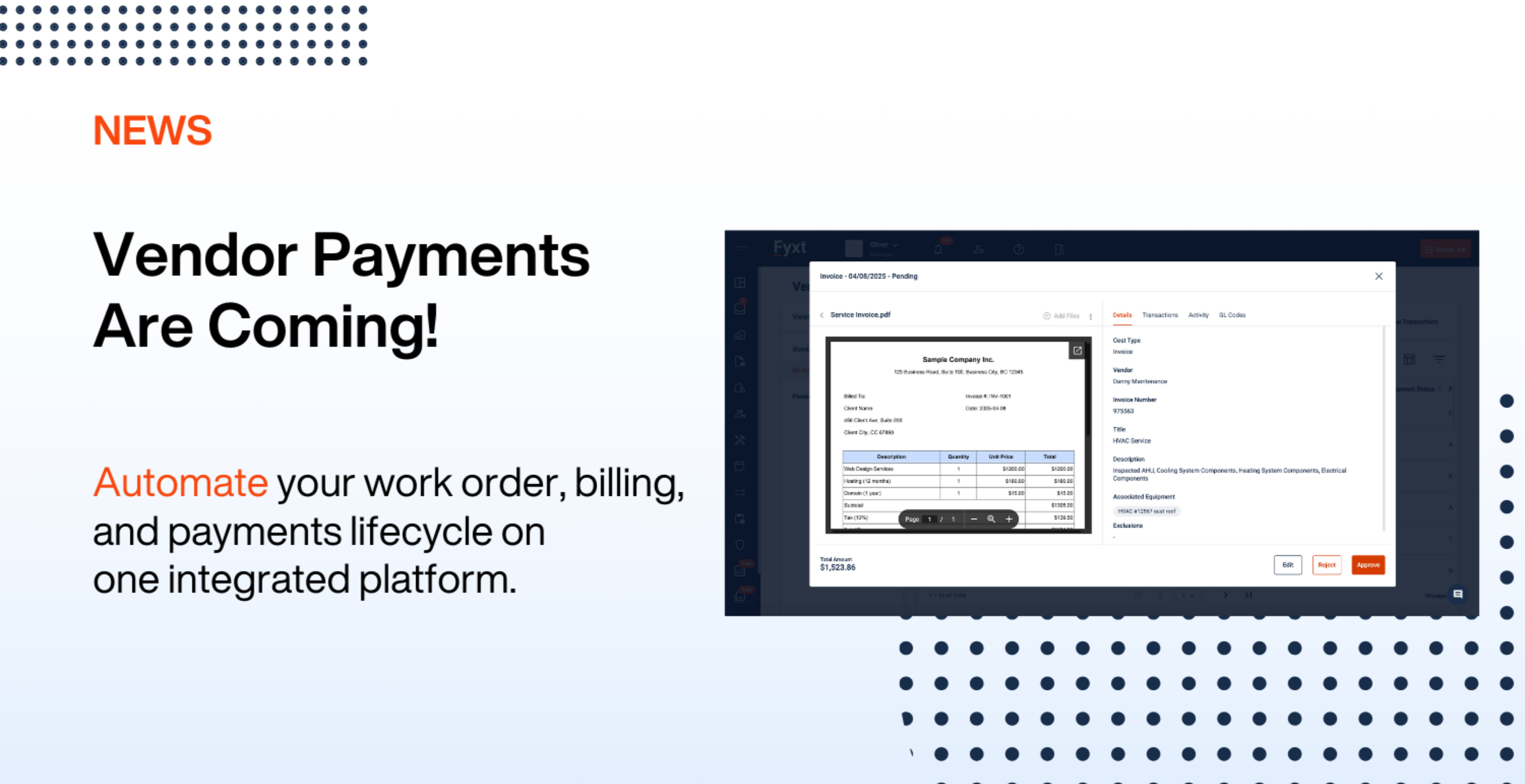
Fyxt is evolving to meet the needs of property managers and CRE professionals with innovative tools like Fyxt Rent Pay and the new Fyxt Vendor Pay.

Rent collection has evolved from traditional paper checks to a fully digital process, saving property managers time and reducing errors. Rent collection software simplifies the payment process